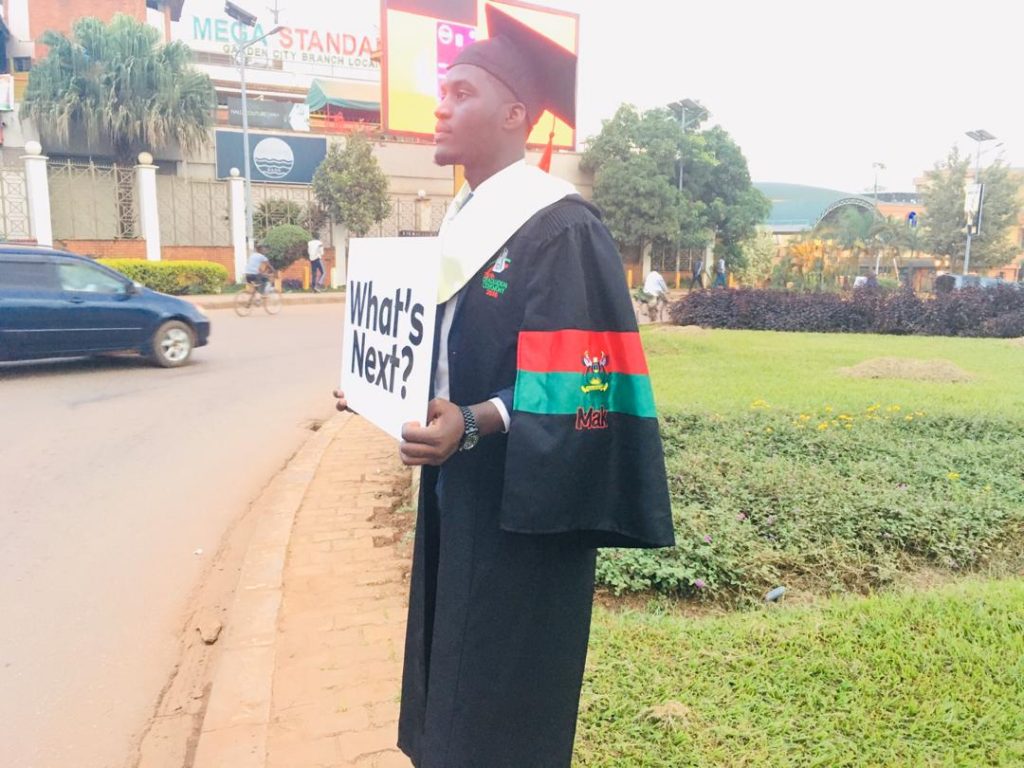After three to five years of studying at Makerere hill, a total of 13509 students were conferred upon degree and awarded diplomas during a four- day ceremony from January 14– 17 at the University’s Freedom Square.
And of course the achievement was worth celebrating. But after that excitement, reality check in, no jobs!
According to statistics from Wikipedia, the unemployment rate for young people in Uganda ages 15–24 is 83%. And most fresh graduates fall under this age bracket (23-24).
“This rate is even higher for those who have formal degrees and live in the urban area. This is due to the disconnect between the degree achieved and the vocational skills needed for the jobs that are in demand for workers,” says Wikipedia.
In fact, President Yoweri Kaguta Museveni has a number of times urged students to study science subjects or opt for vocational courses which are marketable instead of going for arts and suffer after completing education.
This can be supported by a popular notion: “in Uganda a degree is important to only those who don’t have it.”
But also some graduates have negative views on certain jobs so they are unwilling to take them if offered a position.
Against that backdrop, Kampala streets were Monday flooded with Makerere graduates clad in their gowns holding placards, “what is next?”
Their demonstration was peaceful.

It must be noted that youth unemployment poses a serious political, economic, and social challenge to the Uganda and its leadership.
The cycle is making it increasingly difficult for Uganda to break out of poverty. Informal sector work accounts for the majority of young workers in Uganda. 3.2% of youth work for waged employment, 90.9% work for informal employment, and 5.8% of the Ugandan youth are self-employed.